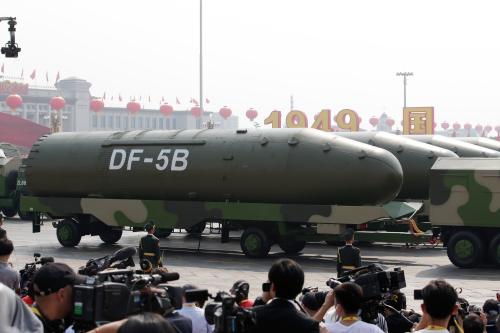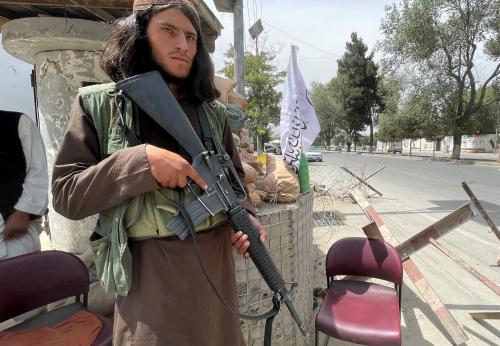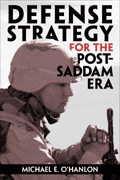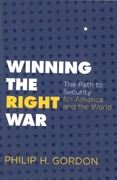“To use some of the time honored clichés, ‘The enemy may get a vote too.’ Or the Bolshevik line, ‘You may not have an interest in war, but war may have an interest in you’ I paraphrase that to say we may not, at the moment, have an interest in counterinsurgency and stabilization missions, but they may have an interest in us… we can’t be like the ostrich putting our head in the sand just because we’re tired of these kinds of wars. They might come back, whether we like it or not.” says Senior Fellow Michael O’Hanlon about his new book, “The Future of Land Warfare.”
After learning about the various scenarios that might necessitate land warfare, we’ll hear Russ Whitehurst, senior fellow in Economic Studies and Editor of the Evidence Speaks project, discuss the cost of universal Pre-K. “The question is: what should the nation or states do to increase participation rates to a universal level?” Whitehurst asks in this project. “And what I’ve found by looking at the evidence is that actually people haven’t provided very good evidence on how many children are presently served.”
Also, stay tuned to hear expert David Wessel update us on one of the nation’s most alarming economic problems – wage stagnation.
Show Notes:
- Read more about O’Hanlon’s book, “The Future of Land Warfare”
- The future of the U.S. army
- Toward a “Reaganov” Russia: Russian Security Policy after Putin
- Obama the Carpenter: The President’s National Security Legacy
- What role will evidence play in the 2016 election?
- Do we already have universal preschool?
- Why public school vouchers could have bi-partisan appeal
- Hutchins Roundup: wealth inequality, student borrowing, and more
Subscribe to the Brookings Cafeteria on iTunes, listen on Stitcher, and send feedback email to [email protected].
The Brookings Institution is committed to quality, independence, and impact.
We are supported by a diverse array of funders. In line with our values and policies, each Brookings publication represents the sole views of its author(s).













Commentary
PodcastThe future of American warfare
October 9, 2015
Listen on
Brookings Cafeteria Podcast